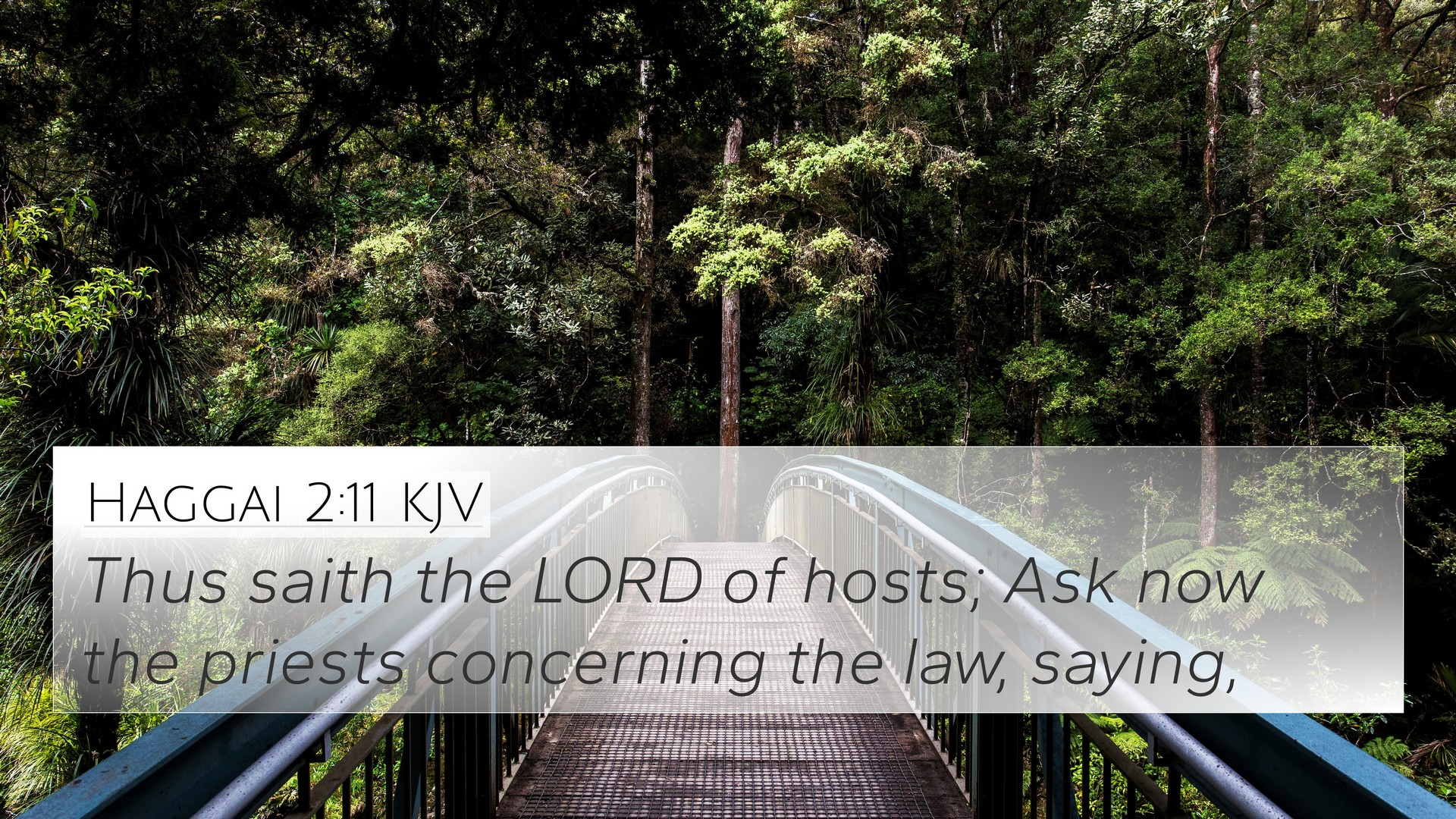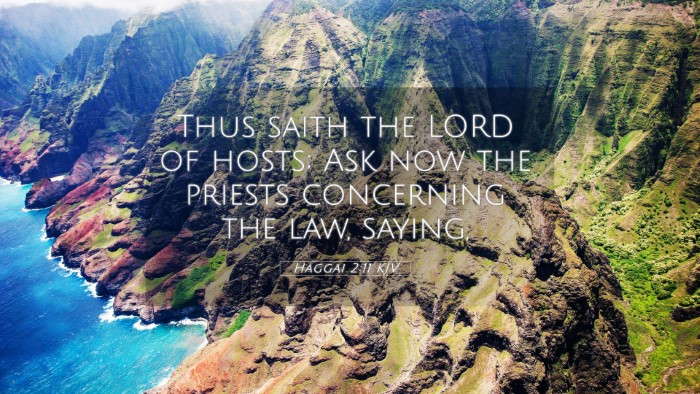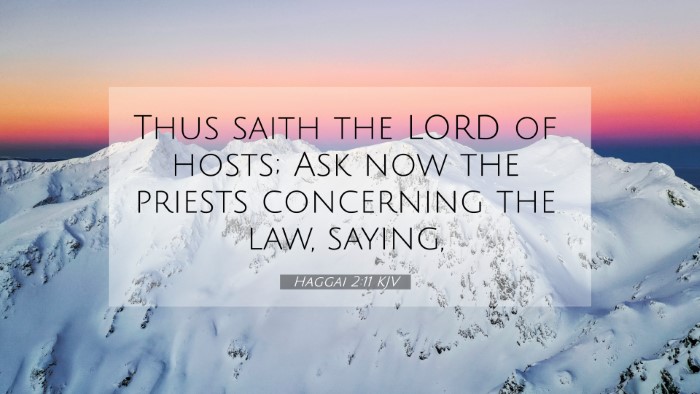Old Testament
Genesis Exodus Leviticus Numbers Deuteronomy Joshua Judges Ruth 1 Samuel 2 Samuel 1 Kings 2 Kings 1 Chronicles 2 Chronicles Ezra Nehemiah Esther Job Psalms Proverbs Ecclesiastes Song of Solomon Isaiah Jeremiah Lamentations Ezekiel Daniel Hosea Joel Amos Obadiah Jonah Micah Nahum Habakkuk Zephaniah Haggai Zechariah MalachiHaggai 2:11 Similar Verses
Haggai 2:11 Cross References
Thus saith the LORD of hosts; Ask now the priests concerning the law, saying,
Uncover the Rich Themes and Topics of This Bible Verse
Listed below are the Bible themes associated with Haggai 2:11. We invite you to explore each theme to gain deeper insights into the Scriptures.
Haggai 2:11 Cross Reference Verses
This section features a detailed cross-reference designed to enrich your understanding of the Scriptures. Below, you will find carefully selected verses that echo the themes and teachings related to Haggai 2:11 KJV. Click on any image to explore detailed analyses of related Bible verses and uncover deeper theological insights.
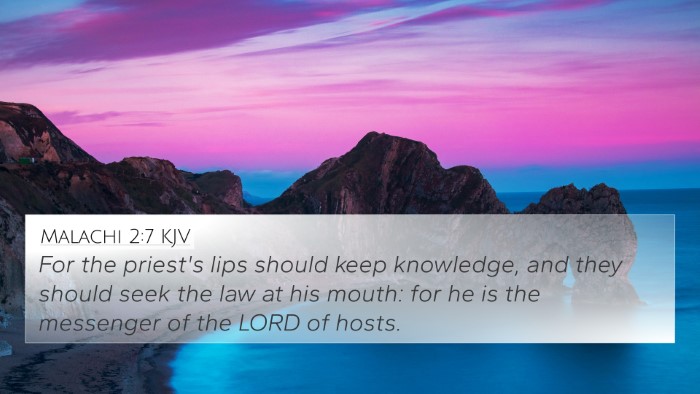
Malachi 2:7 (KJV) »
For the priest's lips should keep knowledge, and they should seek the law at his mouth: for he is the messenger of the LORD of hosts.
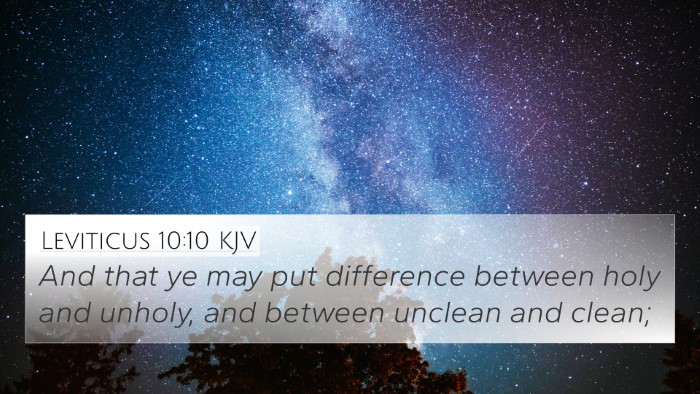
Leviticus 10:10 (KJV) »
And that ye may put difference between holy and unholy, and between unclean and clean;
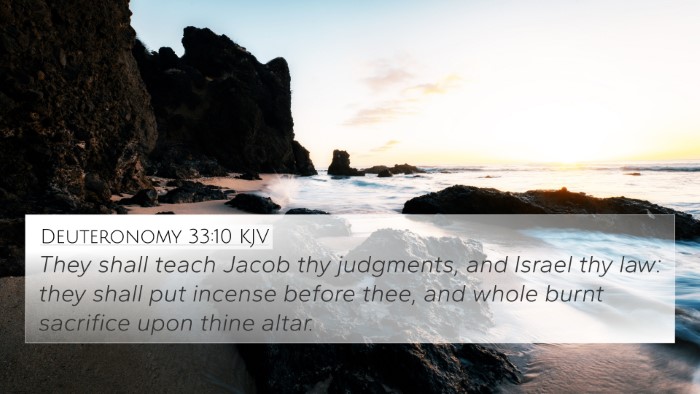
Deuteronomy 33:10 (KJV) »
They shall teach Jacob thy judgments, and Israel thy law: they shall put incense before thee, and whole burnt sacrifice upon thine altar.
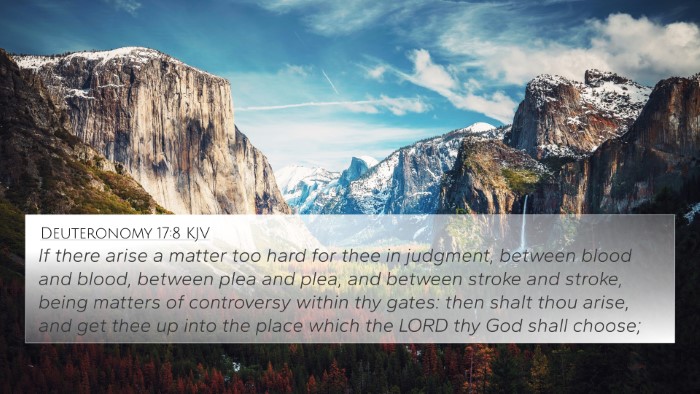
Deuteronomy 17:8 (KJV) »
If there arise a matter too hard for thee in judgment, between blood and blood, between plea and plea, and between stroke and stroke, being matters of controversy within thy gates: then shalt thou arise, and get thee up into the place which the LORD thy God shall choose;
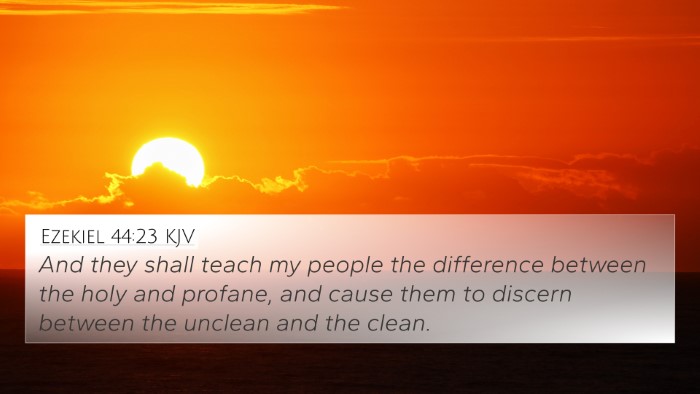
Ezekiel 44:23 (KJV) »
And they shall teach my people the difference between the holy and profane, and cause them to discern between the unclean and the clean.
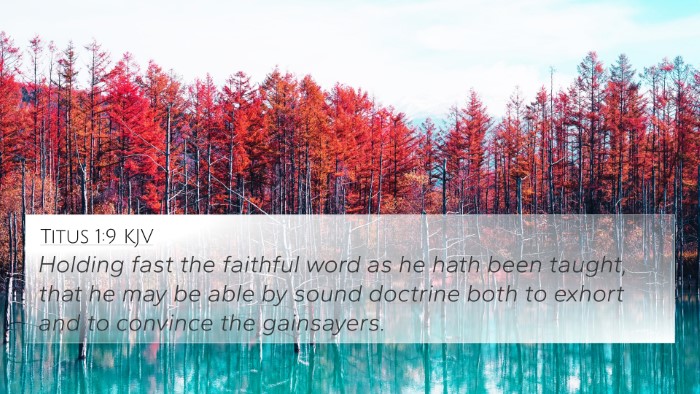
Titus 1:9 (KJV) »
Holding fast the faithful word as he hath been taught, that he may be able by sound doctrine both to exhort and to convince the gainsayers.
Haggai 2:11 Verse Analysis and Similar Verses
Haggai 2:11 - Meaning and Interpretation
Haggai 2:11 states:
"Thus saith the LORD of hosts; Ask now the priests concerning the law, saying, If one bear holy flesh in the skirt of his garment, and with his skirt do touch bread, or pottage, or wine, or oil, or any meat, shall it be holy? And the priests answered and said, No."
This verse serves as a crucial bridge in understanding the complexities of holiness and the law. In this exposition, we will delve into various commentaries to extract significant insights, providing clarity on its meaning in a broader biblical context.
Summary of Insights
The verse is part of Haggai's prophetic message to the people who had returned from exile and were rebuilding the temple. Here are combined insights from notable public domain commentaries:
-
Matthew Henry:
Henry emphasizes the importance of asking the priests to understand the implications of holiness. This verse illustrates that holiness cannot be transferred from one object to another; one must understand the intrinsic nature of holiness.
-
Albert Barnes:
Barnes points out that this verse challenges the people’s understanding of ceremonial purity. It signifies that physical contact with the holy does not automatically impart holiness to other things, emphasizing personal responsibility in one's relationship with God.
-
Adam Clarke:
Clarke interprets this inquiry as more than a question about ceremonial law—it serves as a metaphor for spiritual state. It demonstrates that mere association with the holy does not make one holy; rather, it requires a personal transformation and commitment to God.
Contextual Analysis
This passage is significant within the context of the prophet Haggai’s ministry, directed towards people who had become complacent in their faith and their rebuilding efforts. The emphasis is on understanding the distinction between outward rituals and the genuine inner holiness that God seeks.
Related Bible Cross References
To better understand Haggai 2:11, let us explore interconnected scriptures that share thematic connections:
- Leviticus 10:10-11 – The necessity of distinguishing between the holy and unholy.
- Isaiah 6:5 – Acknowledgment of sin in the presence of holiness.
- Hebrews 12:14 – Pursuing holiness as essential for seeing the Lord.
- Matthew 15:8-9 – Addressing the difference between outward appearances and true devotion.
- 1 Peter 1:16 – A call to be holy as God is holy.
- James 1:27 – Pure religion involves personal purity and caring for others.
- Romans 12:1 – Presenting bodies as living sacrifices as a spiritual act of worship.
Thematic Connections
Understanding Haggai 2:11 requires recognizing the broader themes of:
- Holiness: The distinction between ceremonial and true holiness is pivotal in God’s expectations of His people.
- Personal Responsibility: Each individual’s relationship with God is contingent on their own faith and purity, not merely on rituals or traditions.
- The Nature of God: This verse reflects on God’s concern for true worship and holiness, surpassing mere legalistic observance.
Tools for Deeper Study
For those seeking to dig deeper into the complexities of biblical texts, utilizing resources such as:
- Bible Concordance for thematic discoveries
- Bible Cross-Reference Guide for linking related scriptures
- Comprehensive Bible Cross-Reference Materials for extensive study
Applying the Teachings of Haggai 2:11
In modern application, this verse encourages believers to:
- Examine their own lives for genuine holiness.
- Engage actively in understanding the heart of God’s law.
- Seek to develop a personal relationship with God beyond mere ritualistic practices.
Conclusion
Haggai 2:11 serves as a profound reminder of the intrinsic nature of holiness and the responsibilities that come with it. By understanding the insights from various commentaries, we recognize the depth of meaning that this verse holds within the broader narrative of Scripture.
